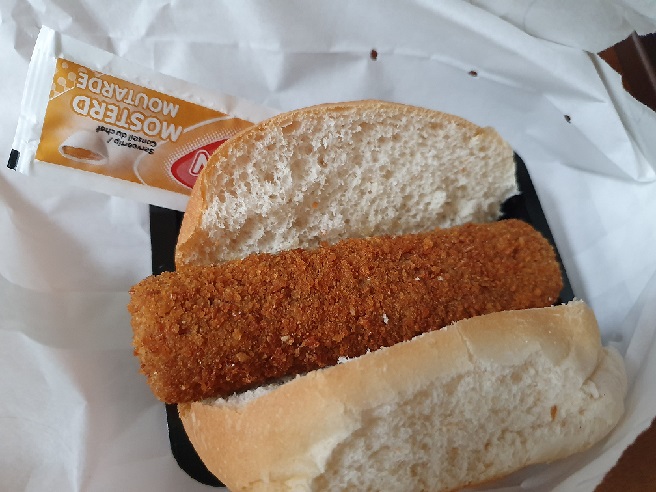Having an outsider look at your national cuisine can be enlightening, as is the case here as Talia Lavin examines the broodje kroket:

In fact, despite this irreverent and slightly louche introduction, the history of the broodje kroket is intertwined with the brutal history of its homeland. Most of the sandwich’s ingredients are bog-standard European, from the chopped beef to the béchamel to the spicy mustard. Today, the kroket can be filled with almost anything (stir-fried noodles, mashed potato, liver and rice, goulash.) But in the recipe I found, the glaring exception to the European-centric ingredients was the teaspoon or so of kecap manis, sweet soy sauce—the most popular condiment in Indonesia. Kecap manis is popular in the Netherlands because the Dutch East India Company conquered what is now Indonesia four centuries ago, and its parent nation held on to the so-called “Spice Islands” for more than three hundred years. That’s why kecap manis is in the broodje kroket, and other Dutch dishes, like zeeuws spek, a marinated bacon.
I didn’t actually know that we used ketjap in kroketten, but it’s not surprising. Indonesian food, often thoroughly altered to suit Dutch tastes, is one of the staples of our national diet and as Lavin notes, impossible to decouple from our violent colonial history. If there’s one thing the Dutch are good at though it’s ignoring painful realities. For decades after the liberation of Indonesia any debate about our colonial past was steeped in deep nostalgia for a world in which ‘we’ were still important. It took until February this year before the Dutch government officially acknowledged and apologised for the brutal attempts to suppress Indonesian liberation in 1948. Though, as Reza Kartosen-Wong notes in Het Parool, the excuses are limited purely to the “exceptional violence” used in the war, not for waging a war to re-enslave a nation itself, let alone for the Netherland’s wider colonial past. We still want to pretend our colonies just accidently happened to be ruled by us, that we did that out of the kindness of our own hearts and not that rape, murder and genocide are the foundations of our wealth.
No Comments